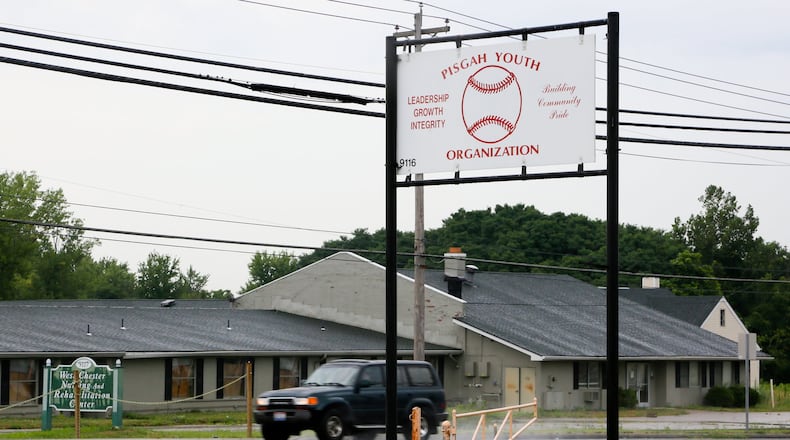A federal judge has already ruled against attempts to block Dr. Mohamed Aziz’s plans to turn a nursing home on Ohio 42 into a rehab clinic. The judge has ordered the township to settle with the doctor.
Aziz sued the township on Sept. 23, alleging that a temporary ban trustees placed on facilities like his Professional Psychiatric Services (PPS) violates the Americans With Disabilities Act.
Judge Timothy S. Black of the U.S. District Court, Southern District of Ohio wrote: “The court has held two initial telephone conferences involving counsel for plaintiffs and for defendant. During these conferences, the court reminded both parties of the consequences that could result if the court finds that the Americans with Disabilities Act and/or the Rehabilitation Act have been violated by defendant, or not.”
Black has reviewed the complaint and the motion for a temporary restraining order and preliminary injunction, and “while acknowledging that these documents reflect only the position of plaintiffs and not the defenses that could be raised by defendant, the court has advised defendant that it would be wise to work with plaintiffs to find a potential resolution to this matter outside of the litigation process,” the judge wrote.
Opposition to the clinic has come from members of the Pisgah Youth Organization, which is across the street from the clinic site, nearby residents and operators of a day care facility next door.
Trustee board President Mark Welch said he is very frustrated about how this situation has panned out.
“He (Black) took it out of our hands,” Welch said. “He pulled the rug right out from underneath us. To me it’s really disappointing but we’re going to work with this the best we can in a bad situation, so to speak.”
Welch said they are working on some conditions to put into a consent decree that hopefully Aziz will agree to, but the text amendments they will consider Tuesday have no application to Aziz’s project. Since Black is presiding over the federal case, Welch said he believes Aziz will have to make some concessions he might not have otherwise.
“If he pushes back and says no I’m not agreeing to any of that stuff, then maybe the judge at that point would say, ‘wait a minute you’re not really working with the township’…,” Welch said. “In the spirit of cooperation he can’t just red line all these conditions and say no, no, no, no, no, no, I’m going to do what I want to do. “
Aziz’s attorney Chris Finney could not be reached for comment but he previously told the Journal-News it is in everyone’s best interest to settle the case quickly.
“It’s more efficient for everybody if things can settle early,” he said. “This is fee shifting litigation, which means that when we win, if we win, the township has to pay the plaintiff’s attorney fees and its damages litigation, so they have to pay him the cost of depriving him of that property since April, when they put that moratorium in place. So it’s going to get pretty expensive for the township to let this play out.”
The text amendments will apply to any new rehabilitation center and as they read right now would make them a conditional use subject to restrictions by the Board of Zoning Appeals. The trustees will also listen to anyone who wants to talk about amendments that ban swingers clubs and put conditions on cell phone towers in residential neighborhoods.
The trustees’ attorney Austin Musser in August said there are some businesses the township can ban outright.
“The Ohio Revised Code lists a couple of a number of different types of sexually oriented businesses, two of them are sexual encounter centers and sexual encounter establishments,” Musser said. “Those two generally have a component of touching that’s involved in the establishment and those are going to be prohibited altogether.”
The owners of the Champagne Club sued the township, and the two sides recently settled the case for $61,000 — the township also agreed to pay their landlord $29,000 toward unpaid rent — and a promise the owners wouldn’t try to relocate elsewhere in the township.
The cell tower amendments are a pre-emptive strike. The township has not had opposition to any cell tower construction recently but they wanted to protect their citizens since Cincinnati Bell tried to put a couple towers in Liberty Twp. last year. The amendments restrict the location, size and appearance of cellphone towers in residential areas.
Trustee George Lang encouraged residents to voice their opinion on the amendments.
“I would always encourage anybody in the public that wants us to hear what they have to say come on and tell us it,” he said. “May not do any good but you have that right.”
The proposed new rules can be read at www.westchesteroh.org.
A public hearing over proposed zoning limits for West Chester Twp. that would affect new drug rehabilitation centers and sexually-oriented businesses will be 6 p.m. Tuesday at the Miami University Voice of America Learning Center, 7847 VOA Park Drive.
About the Author
